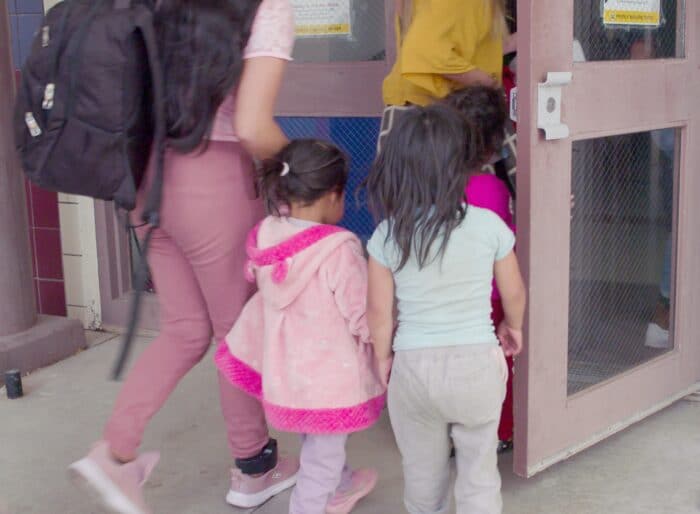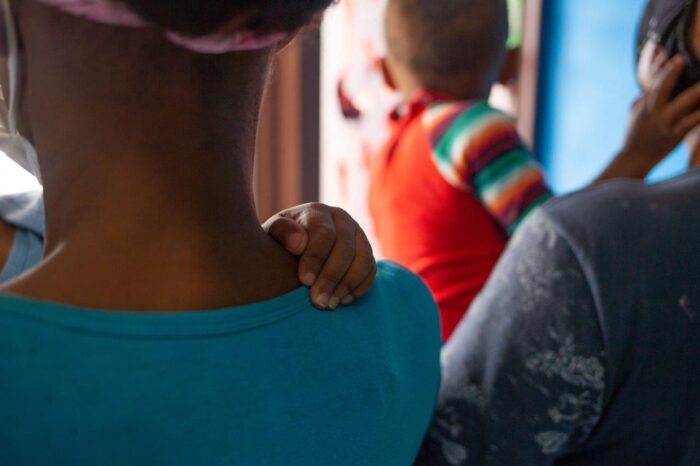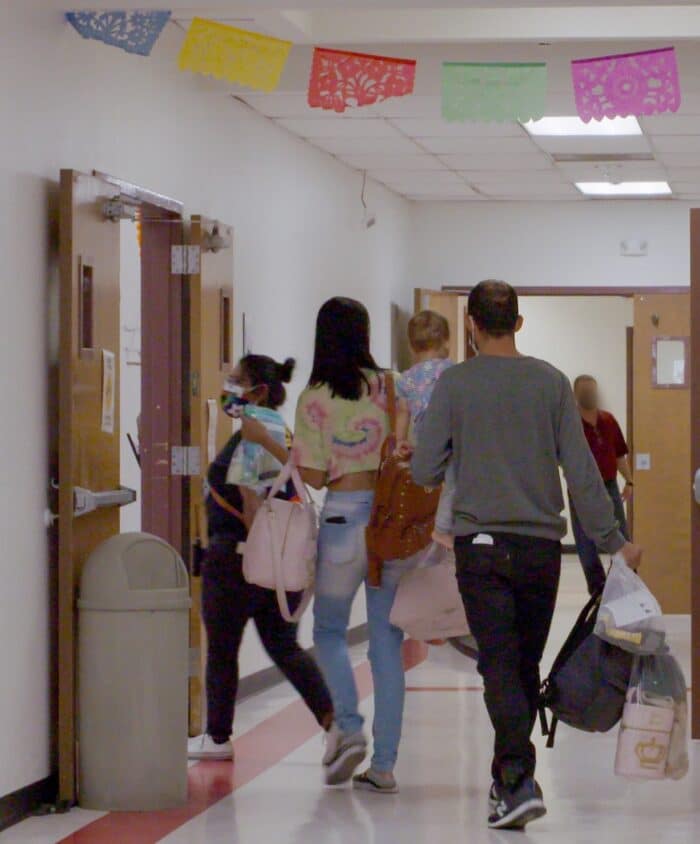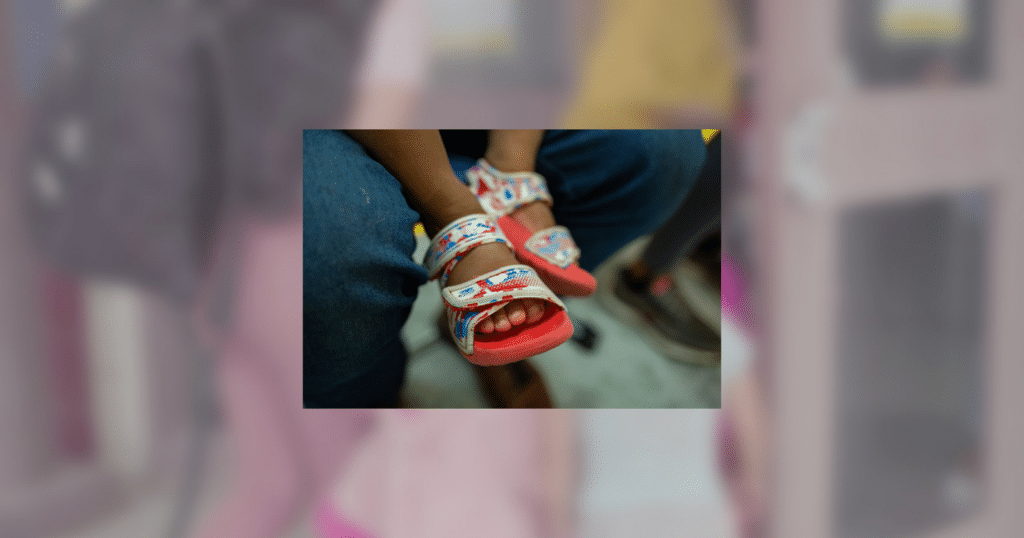Phoenix church adapts its border ministry to meet neighbors’ changing needs
Sometimes a church sets out to help its neighbors in need. Then those needs change — and the church adapts.
Such was the case with Shadow Rock United Church of Christ and the needs of immigrants. In 2018, the Phoenix church received a $10,000 UCC Neighbors in Need grant for a project on the Arizona-Mexico border. Hope Station Nogales, to be built on the Mexican side, would offer hospitality to people being deported from the United States.
Then, in 2019 — just as Hope Station hit a complex set of international delays — U.S. detention centers released thousands of asylum seekers from Mexico and Honduras into Arizona. Many came to Phoenix, three hours north of the border. For Shadow Rock, it was natural to step up and help. The congregation has a history of immigration work, including giving sanctuary to people threatened with deportation.

A central place of welcome
“The needs were urgent and immediate,” said Shadow Rock’s senior minister, the Rev. Ken Heintzelman, of the influx of immigrants. “Churches and nonprofits were responding the best they could by opening their buildings, cooking meals, distributing clothes and medicine, and helping new refugees connect with family in other parts of the country. Over a period of three months, we hosted over 300 refugee neighbors at Shadow Rock. And we were only one of scores of churches in Phoenix doing this work.
“Our community’s initial response was generous, but the need for a larger organized response was obvious.”
The answer was a new International Rescue Committee Welcome Center to assist refugees. Government agencies, nonprofits and churches like Shadow Rock worked together to set up this central place of welcome in a former school.
Heintzelman got permission from national UCC officials to shift the $10,000 NIN grant to that project.
Border station vision still alive
Helping new arrivals and fighting unjust deportation is all part of the same and ever-changing immigration ministry, Heintzelman said. He said one need in particular, back in 2017, caused Shadow Rock to seek NIN funding in the first place. It was the plight of “Dreamers” — young people who benefit from an immigration policy called Deferred Action for Childhood Arrivals.
“The motivation that moved us to write the grant was the political rhetoric using the threat of deportation of Dreamers as political leverage,” Heintzelman said. “The stories of people living in the United States suddenly being ripped from their family and the only life they knew were too many and heartbreaking. We wanted to respond to this need.” Taking part in public protests against the threatened end to DACA further motivated the congregation to do something locally, he said.

That something was Hope Station Nogales, where Dreamers and others — if deported — could find support.
Five years later, the church believes that station could still become a reality, Heintzelman said, despite the delays it has faced. The church continues to work through complications involving cross-border currency exchange and either forming a corporation in Mexico or affiliating with an existing nonprofit. In addition, he said, Shadow Rock’s leadership wants to raise enough money to sustain the project once built. “Our vision for Hope Station Nogales remains important to us,” he said. “It is still a need on the wide continuum.”
‘Constantly changing seascape’
Meantime, he said, the Welcome Center continues to adapt to changing needs in the same spirit of justice and hospitality.
“The Welcome Center will have seasons when Immigration Customs and Enforcement will drop off 150 to 200 refugees a day,” Heintzelman said. “The need is great and constantly shifting. The Welcome Center provides all the hospitality previously offered by congregations but on the larger scale that is appropriate.”

He said Shadow Rock and other organizations continue to provide the center with “leadership, coordination, volunteers, collection of clothing, and meeting emergency needs, such as food, with financial assistance.”
“The work of immigration justice is a constantly changing seascape,” Heintzelman said. “Churches and organizations need to be agile in their capacity to perceive and respond.
“We’re grateful for Neighbors in Need. And we’re grateful for the flexibility of national leadership in responding to these constantly changing needs.”
Most churches will invite gifts to the Neighbors in Need offering on World Communion Sunday, Oct. 3. Online donations can be offered here. Grant applications, with an Oct. 1 deadline, are available here.
Related News
A Prophetic Call for Justice and Peace in Palestine
The executive leaders of the United Church of Christ have issued the following statement...
Read More‘Love is Greater Than Fear’: Regional Youth Events get to the heart of gospel message
United Church of Christ teens attending this summer’s Regional Youth Events (RYE) are...
Read MoreUCC desk calendars available to order now
Prepare for your day, month and year with the United Church of Christ desk calendar —...
Read More


